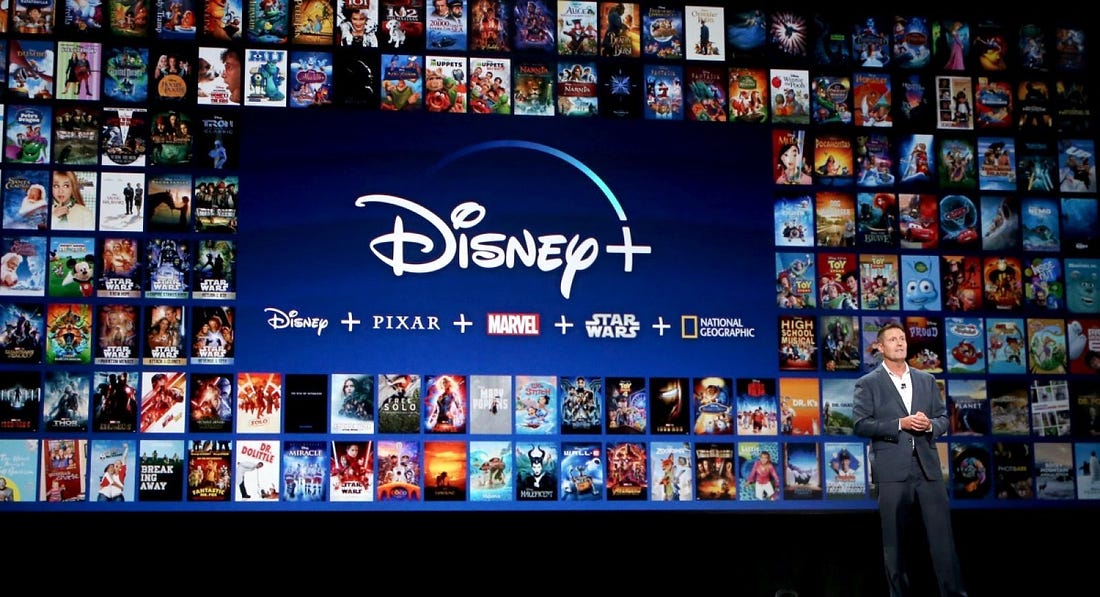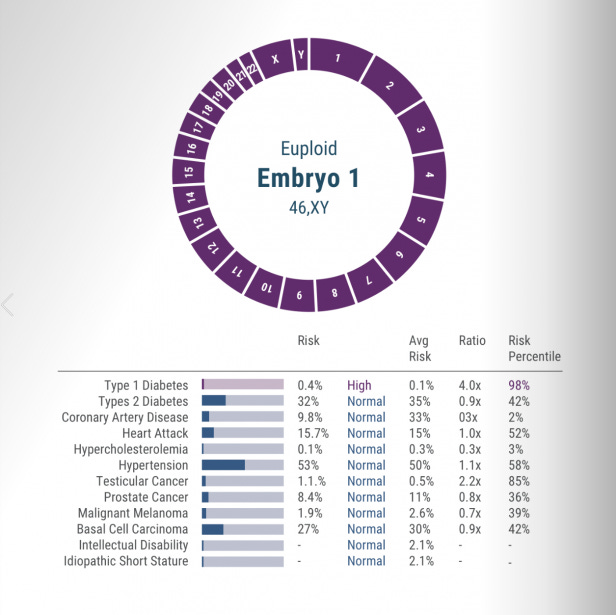▶️ Streaming
The Streaming Wars are here. Disney’s streaming service Disney+ is set to launch this week and will likely accelerate the shift away from cable towards streaming services. It’s a big bet for Disney but one it arguably had to make.
Disney+ joins Netflix, Hulu, Amazon Prime, CBS All Access, and Apple TV+ which have already launched, while HBO Max (AT&T) and Peacock (NBCUniversal) will launch next year. The WSJ has a guide on how to watch TV in this confusing age.
⚙️ Mobility
CNBC takes us inside Lyft’s self-driving car lab. Lyft believe that people will first experience self-driving cars through the Lyft platform as they plan to incorporate a “self-driving car” option in the app that you can choose when calling a car.
The self-driving Uber that killed a woman walking across the road at night last year didn’t know that pedestrians could jaywalk.
The New York Times profiles Lilium, a German startup racing to build the world’s first flying taxi. It’s a competitive field with at least 20 companies aiming to make flying taxis viable. Notable competitors include Kitty Hawk, which is backed by Google co-founder Larry Page and run by Sebastian Thrun, who used to drive Google’s self-driving car efforts, and Uber, which plans to open its air taxi service in Los Angeles, Dallas, and Melbourne in 2023.
Yandex, Russia’s largest tech company, is testing an autonomous delivery robot in Moscow (video).
? Renewables
Startmate is launching an extension that will fund up to 10 startups focused on addressing climate change.
With Australia burning the launch of a climate focused extension to the @startmate accelerator backed by @mcannonbrookes @blackbirdvc @airtreevc and others seems more timely than ever: https://t.co/IYPmofd2pv
— Cara Waters (@carawaters) November 10, 2019
Lazard released their annual Levelized Cost of Energy Report last week. It showed that wind and solar costs are now at the point where they match or beat the marginal costs of coal-fired generation and nuclear power (with the caveat that this doesn’t include any storage costs).
? Biology
A company called Genomic Prediction is now providing genetic scorecards for embryos. The company claims they can create an accurate view of an embryo’s genome and use this information to determine the risk of various diseases, which will then let prospective parents choose embryos for implantation that have the lowest chance of developing future problems. While the company focuses on disease, in theory you could select for any detectable trait you like which is raising concerns about a new era of designer babies.
A US Judge has allowed a detective to access the DNA records of 1 million Americans stored at GEDmatch without their consent.
CRISPR has taken its first steps in editing genes to help fight cancer. The test has only been used to assess safety so far, but the ultimate goal is to edit genes to help a patient’s own immune system attack cancer.
New genetically modified corn produces up to 10% more than similar types.
Supporters of genetic engineering have long promised it will help meet the world’s growing demand for food. But despite the creation of many genetically modified (GM) pest- and herbicide-resistant crops, scientists haven’t had much success with boosting crop growth. Now, researchers have for the first time shown they can reliably increase corn yields up to 10% by changing a gene that increases plant growth—regardless of whether growing conditions are poor or optimal.
? Artificial Intelligence
Everybody dance now: NVIDIA’s research team have developed a technique that can use an existing video and a single image of a person to make the person in the image imitate the movement in the video.
The Nasdaq stock exchange is using AI to monitor trades and detect fraud.
? Health
A team at Hong Kong City University injected drug-carrying nanobots into mice. The nanobots were designed to improve the precision of drug delivery, and they successfully inhibited the spread of cancerous tumours. The team believes we’re 10-15 years off nanobots being used to help cure human diseases.
Virtual reality is being used as an alternative to general anaesthesia for kids in a pilot that’s being run by the Starlight Children’s Foundation. So far it has shown promising results. A different trial in Germany found that when adults used virtual reality while undergoing shoulder, hand, or knee surgeries the need for intravenous sedation reduced by at least 50%.
Robots are increasingly being used for surgical procedures. Last week the Cleveland Clinic successfully performed the world’s first robotic single-port kidney transplant, which doctors at a Toronto hospital have performed the world’s first neurovascular surgery using robots.
A man had a chip implanted in his brain to help tackle an opioid addiction. The Deep Brain Simulation (DBS) chip was placed in the addiction and reward centre and will send signals designed to limit cravings.
? Cybersecurity
Hackers can use lasers to “speak” to your Amazon Echo or Google Home. Cybersecurity researchers found that the microphones of these devices had a vulnerability where the sensor responds to light as if it were sound. The researchers could exploit this vulnerability to open garages and make online purchases.
Google have open sourced the design of a new security chip called Titan. Titan aims to secure data centre computers by verifying that the initial boot process is happening as expected and that nothing has been maliciously altered.
⚡ Other Snippets
Today is Alibaba’s annual Singles’ Day, the largest online retail event in the world. So far today sales topped $800 million in the first minute $12 billion in the first hour. This year’s event is set to challenge last year’s $31 billion record.
Microsoft announced Azure Quantum, a new cloud service that lets coders run quantum code on simulated quantum hardware or real quantum hardware from Honeywell, IonQ, or QCL.
WIRED argues that Twitter’s plan to get rid of paid political ads looks like a simple solution but it will only make the problem of misinformation worse.
Virgin Galactic became the first space tourism company to list on a stock exchange (ticker SPCE).







